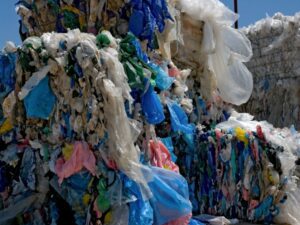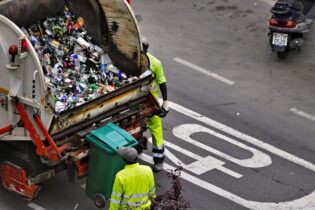More than 40 local, district and provincial municipalities countrywide have benefitted from strategic sustainability partnerships in 2021/2 – not just improving waste collection and PET plastic recycling rates, but also creating much-needed income opportunities in the sector and helping develop South Africa’s circular economy.
One such drive involves the Zonda Insila Programme (ZIP) which was launched in Breyton in 2019 with only four projects and now boasts 14 projects supporting 240 community members spanning the Nkangala, Gert Sibande and Ehlanzeni district municipalities in Mpumalanga. “With the level of interest shown and the growing number of informal waste pickers, there is no doubt that ZIP is encouraging more and more young people to shift their thinking towards waste as a form of potential income generation. To say waste is trash is outdated,” said ZIP coordinator Linah Duduzile Ndala. For the past 17 years, South Africa’s most experienced plastic producer responsibility organisation (PRO), PETCO, together with its members, has been engaging with municipalities on sustainability programmes to improve effective waste management and recycling rates. Key among municipal waste management priorities is the diversion of waste that has value from landfills, as well as accommodating waste pickers in the recycling value chain. “Waste is not trash, it is economy,” said Ndala. “The role of stakeholders like municipalities, PETCO and the province is very important because they need to take the lead.” PETCO’s role in such municipal waste management partnership projects comes in the form of equipment provision and infrastructure support for waste pickers and buy-back centres – with the goal of incorporating waste pickers in the formal recycling sector – as well as training and skills development for municipal employees involved in waste management. “Currently, there are very few municipal separation-at-source collection systems, so we work with interested municipalities to establish collection projects and expand PET collection into new areas,” said PETCO CEO Cheri Scholtz. “This year so far, we have conducted 28 training workshops for 1 357 waste pickers in eight provinces, and a further three accredited business training workshops. “We help grow sustainable businesses and sponsor infrastructure and equipment to unlock collections and improve the quantity and quality of post-consumer PET collected,” she said. Municipalities are, by law, required to develop Integrated Waste Management Plans (IWMP) to drive the implementation of the National Waste Management Strategy. Although legislation requiring producer responsibility organisations (PROs) to co-operate with municipalities came into effect in November 2021, PETCO had been doing so since 2005.Another successful drive has seen the Drakenstein Municipality reaping the rewards of a recycling programme launched four years ago at the Wellington Landfill Site, with several success stories emanating from it.
According to Thys Serfontein, Senior Manager: Solid Waste and Landfill Management at Drakenstein Municipality, PETCO had been “amazingly supportive of this project right from the start and still are today”. Drakenstein Municipality has been one of the first municipalities to successfully complete the “integration of waste pickers into the formal waste industry at municipal level” – one of national government’s focus areas, Serfontein said. “As soon as our Material Recovery Facility [MRF] and Refuse Transfer Station are fully functional in 2022/23, these wastepreneurs will be accommodated. They will be able to increase their production and it will also mean that approximately 50 tonnes less material will reach the landfill site,” said Serfontein. PETCO CEO Cheri Scholtz said waste pickers “play an important role in diverting waste from landfill and will play an increasingly valuable role in municipal waste collection systems and rolling out kerbside projects”. “Their integration advances South Africa’s priorities such as job creation, poverty alleviation, environmental protection and economic transformation,” Scholtz said, adding that PETCO’s experience in working with the entire PET value chain made it qualified to assist municipalities with sustainability efforts. “In the past year alone, PETCO and our partners ensured that 90 402 tonnes of post-consumer PET, which equates to 2.1 billion bottles, was collected for recycling, saving 560 495 cubic metres of municipal landfill space. A further R1.2 billion was injected into the national economy from the sale of recycled materials.” Scholtz added: “The impact of partnerships on the recycling value chain cannot be underestimated, and collaboration is critical to ensuring that change can be implemented at a national scale.” Plans are currently underway to assist a further 21 sustainability projects with equipment, branding and accredited training.




